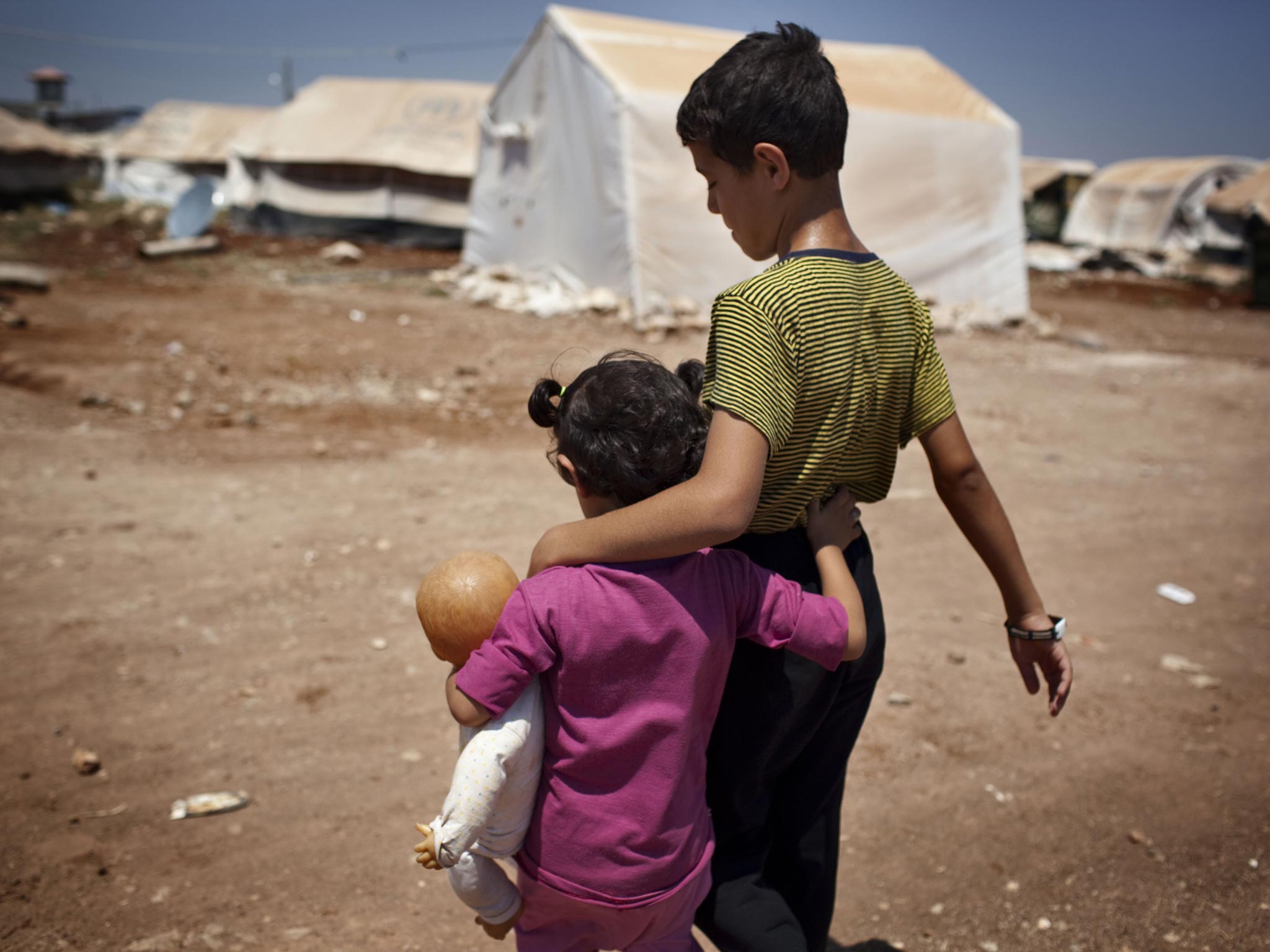You spend more on your morning cup of coffee than is spent educating a refugee child each month
Children living in conflict have an average of 38p spent on their education per month

Your support helps us to tell the story
From reproductive rights to climate change to Big Tech, The Independent is on the ground when the story is developing. Whether it's investigating the financials of Elon Musk's pro-Trump PAC or producing our latest documentary, 'The A Word', which shines a light on the American women fighting for reproductive rights, we know how important it is to parse out the facts from the messaging.
At such a critical moment in US history, we need reporters on the ground. Your donation allows us to keep sending journalists to speak to both sides of the story.
The Independent is trusted by Americans across the entire political spectrum. And unlike many other quality news outlets, we choose not to lock Americans out of our reporting and analysis with paywalls. We believe quality journalism should be available to everyone, paid for by those who can afford it.
Your support makes all the difference.Education is the most underfunded sector in humanitarian response where children living in conflict have an average of 38p spent on their education per month, new research from War Child shows.
The charity said that half of all children out of school worldwide live in conflict zones. Each child living in conflict has an average of 38p being spent on their education per month.
The number of children forced out of education during 2015 due to conflict was high. In northern Nigeria Boko Haram forced nearly 1.2 million children to flee their homes due to their terrorist activity. Over 1,100 schools were attacked or destroyed by the group with 600 teachers allegedly murdered, while 19,000 teachers fled, according to War Child, while in Yemen 1.8 million children have been forced to leave their classrooms due to fighting.
Half of the 4.4 million people who have fled Syria during the crisis to neighbouring countries are reportedly children. While a million refugees have travelled to Europe to escape the conflict, thousands have died on the journey across the seas and some 500 children have reportedly drowned.
The charity states that more than 16 million babies were born in warzones, which accounts for one in eight births worldwide last year.
War Child claims a pledge made by world leaders in 2000 to provide all children with basic education by 2015 has not been fulfilled, but has hailed a promise from world leaders to ensure all children receive a quality primary and secondary education by 2030 as part of new Sustainable Development Goals from the UN.
Rob Williams, Chief Executive at War Child UK, said: “Today we’re asking people to think about the value of a child’s future. 38 pence isn’t very much, it can buy small things - a tin of beans, a packet of dried pasta, a single apple. It doesn’t buy much, and it certainly does not buy an education.
“We believe education is the most important tool to enable the world’s most vulnerable children to build their own futures.”
A Unicef report released earlier this month warned that extensive gaps in education can contribute to long-term economic and social crises. It stated that South Sudan has the highest proportion of children not receiving an education, followed by Niger, Sudan and Afghanistan.
Join our commenting forum
Join thought-provoking conversations, follow other Independent readers and see their replies
Comments